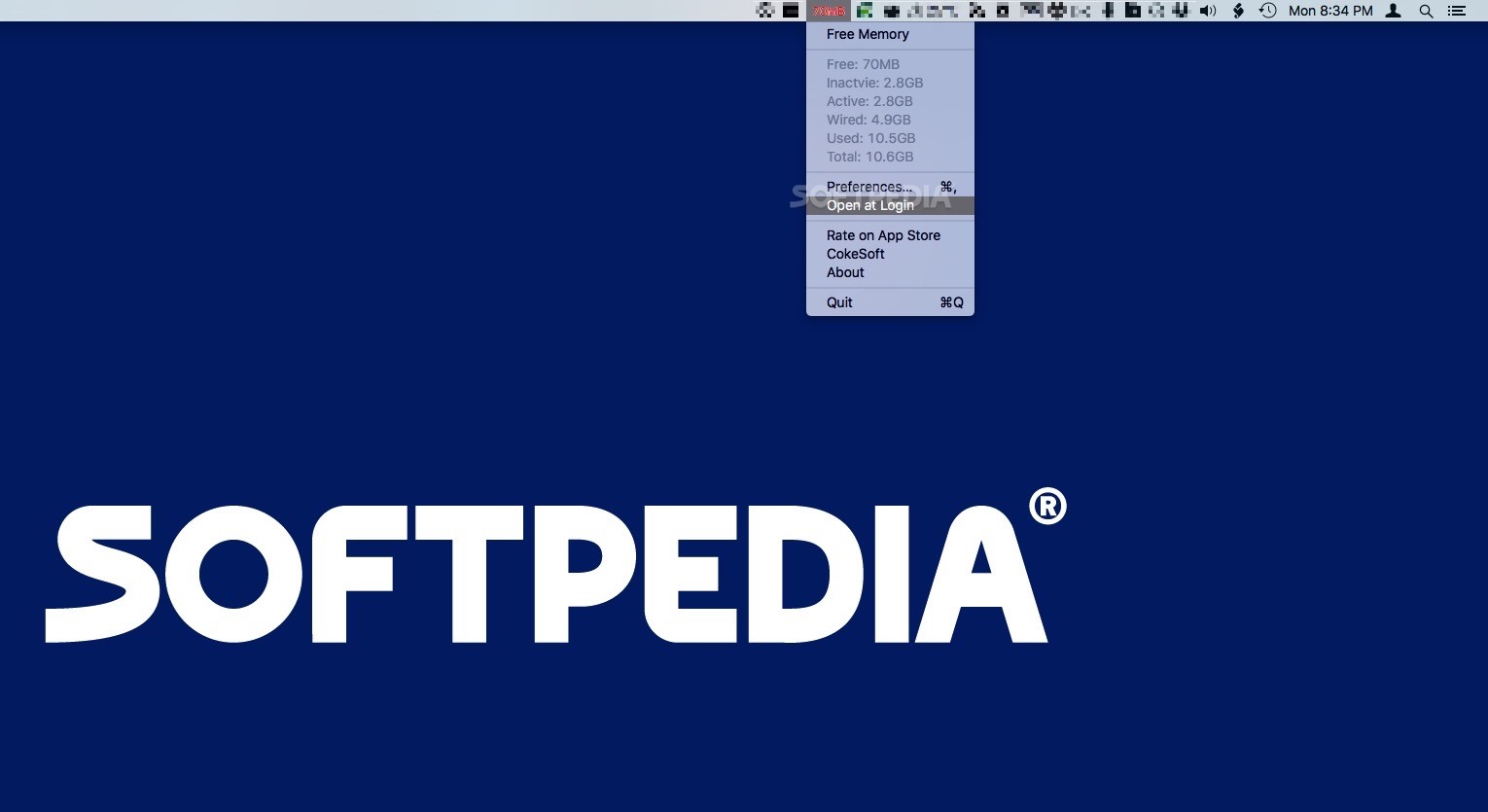MacBook Pro Mid 2012 DDR3-1600Mhz. MacBook Pro 13 inch and 15 inch Mid 2012 RAM upgrades run DDR3-1600Mhz with a system maximum of 16GB. It is important to note the 2012 MacBook Pro Retina Display (Model ID 10,1 and 10,2) comes with on-board memory only and cannot be upgraded. The Pro, on the other hand, can go as far as 2TB. If you think you're going to be needing a lot of space, then the Pro is a fitting option. Both Mac memory and storage are outstanding and necessary for optimal computing performance during strenuous computer projects. Without sufficient memory support, laptop devices can overheat quickly. High memory usage / Memory leak caused by Intel driver in Performance & Maintenance Hello, I'm running a 64 bit Windows 10 laptop. On idle, the System process is showing a high memory usage of more than 150 MB, usually more than 200 MB.
The heap memory pool is a predefined memory pool object that allowsthreads to dynamically allocate memory from a common memory regionin a malloc()-like manner.
Note: Wattages are estimates only. Actual power draw may differ from listed values. CleanMem - CleanMem keeps memory use in check on the system without the memory being pushed to the page file. This in turn keeps the system running smoother. CleanMem portable also available. » More Info » Download Memtest86+ - Based on the well-known original memtest86 written by Chris Brady, memtest86+ is a port by some members of the x86-secret team.
- Concepts
- Implementation
Only a single heap memory pool can be defined. Unlike other memory pools,the heap memory pool cannot be directly referenced using its memory address.
The size of the heap memory pool is configurable. The following sizesare supported: 256 bytes, 1024 bytes, 4096 bytes, and 16384 bytes.

A thread can dynamically allocate a chunk of heap memory by callingk_malloc(). The address of the allocated chunk is guaranteedto be aligned on a multiple of 4 bytes. If a suitable chunk of heap memorycannot be found NULL is returned.
When the thread is finished with a chunk of heap memory it can releasethe chunk back to the heap memory pool by calling k_free().
The heap memory pool defines a single maximum size block that containsthe entire heap; that is, a single block of 256, 1024, 4096, or 16384 bytes.The heap memory pool also defines a minimum block size of 64 bytes.Consequently, the maximum number of blocks of each size that the heapmemory pool can support is shown in the following table.
| heapsize | 64 byteblocks | 256 byteblocks | 1024 byteblocks | 4096 byteblocks | 16384 byteblocks |
|---|---|---|---|---|---|
| 256 | 4 | 1 | 0 | 0 | 0 |
| 1024 | 16 | 4 | 1 | 0 | 0 |
| 4096 | 64 | 16 | 4 | 1 | 0 |
| 16384 | 256 | 64 | 16 | 4 | 1 |
Note
The number of blocks of a given size that can be allocatedsimultaneously is typically smaller than the value shown in the table.For example, each allocation of a 256 byte block from a 1024 byteheap reduces the number of 64 byte blocks available for allocationby 4. Fragmentation of the memory pool’s buffer can also furtherreduce the availability of blocks.
The kernel uses the first 16 bytes of any memory block allocatedfrom the heap memory pool to save the block descriptor informationit needs to later free the block. Consequently, an application’s requestfor an N byte chunk of heap memory requires a block that is at least(N+16) bytes long.
The size of the heap memory pool is specified using theCONFIG_HEAP_MEM_POOL_SIZE configuration option.
By default, the heap memory pool size is zero bytes. This value instructsthe kernel not to define the heap memory pool object.
A chunk of heap memory is allocated by calling k_malloc().
The following code allocates a 200 byte chunk of heap memory, then fills itwith zeros. A warning is issued if a suitable chunk is not obtained.
Note that the application will actually allocate a 256 byte memory block,since that is the closest matching size supported by the heap memory pool.
A chunk of heap memory is released by calling k_free().
The following code allocates a 75 byte chunk of memory, then releases itonce it is no longer needed. (A 256 byte memory block from the heap memorypool is actually used to satisfy the request.)
Use the heap memory pool to dynamically allocate memory in amalloc()-like manner.

Memory Pro 1.9 Pack
Related configuration options:
Smart Memory Booster Pro 1.9 Apk
The following heap memory pool APIs are provided by kernel.h: